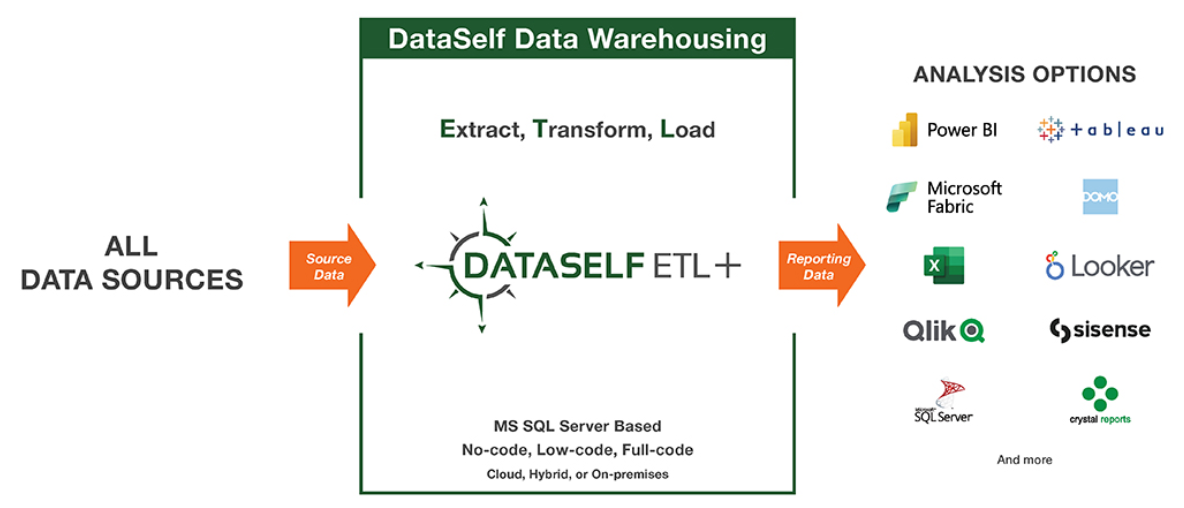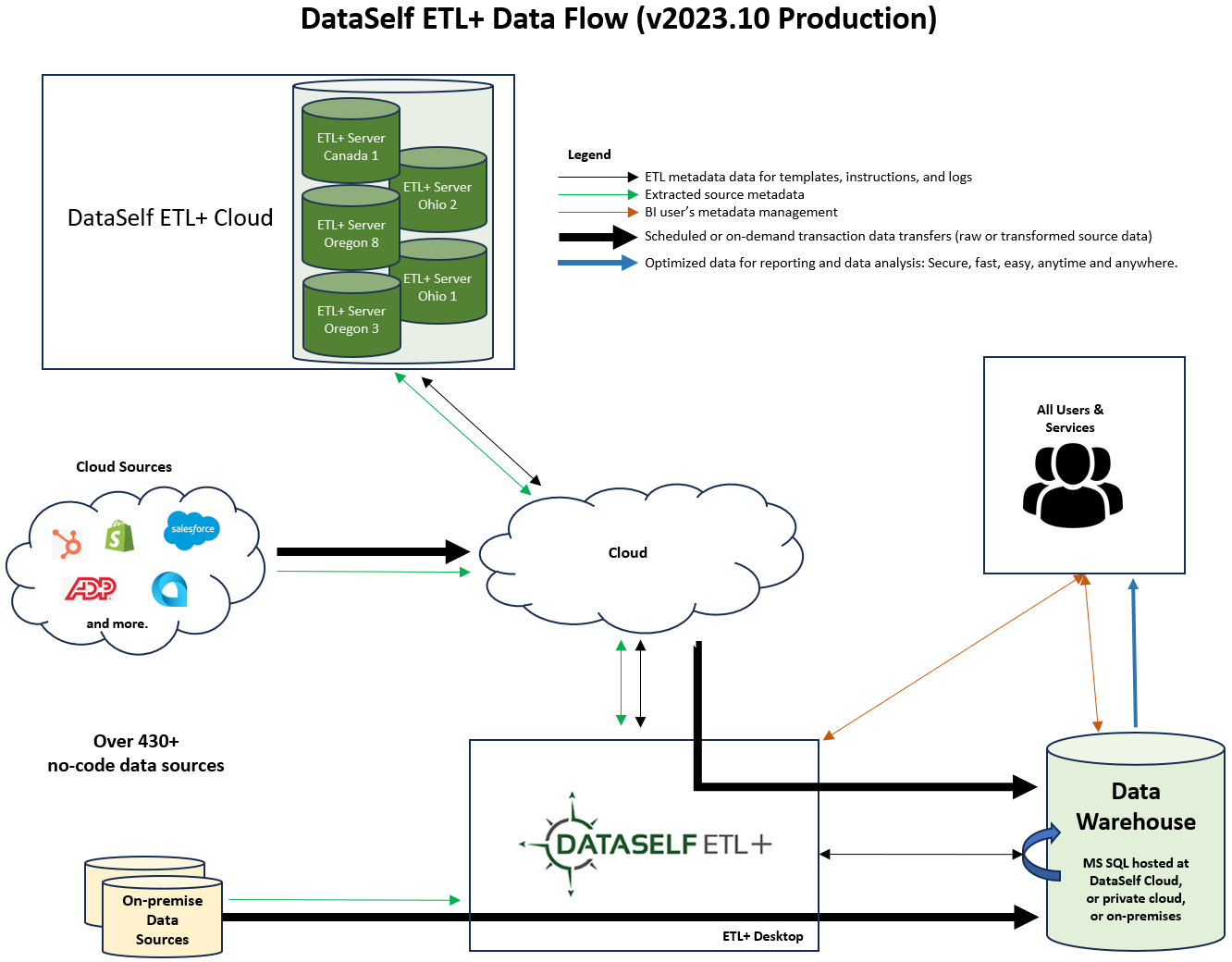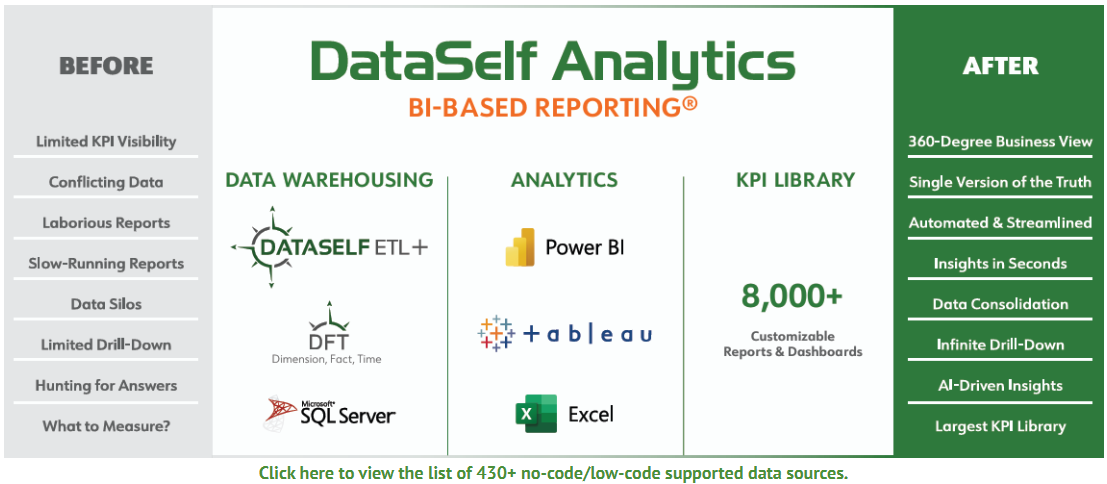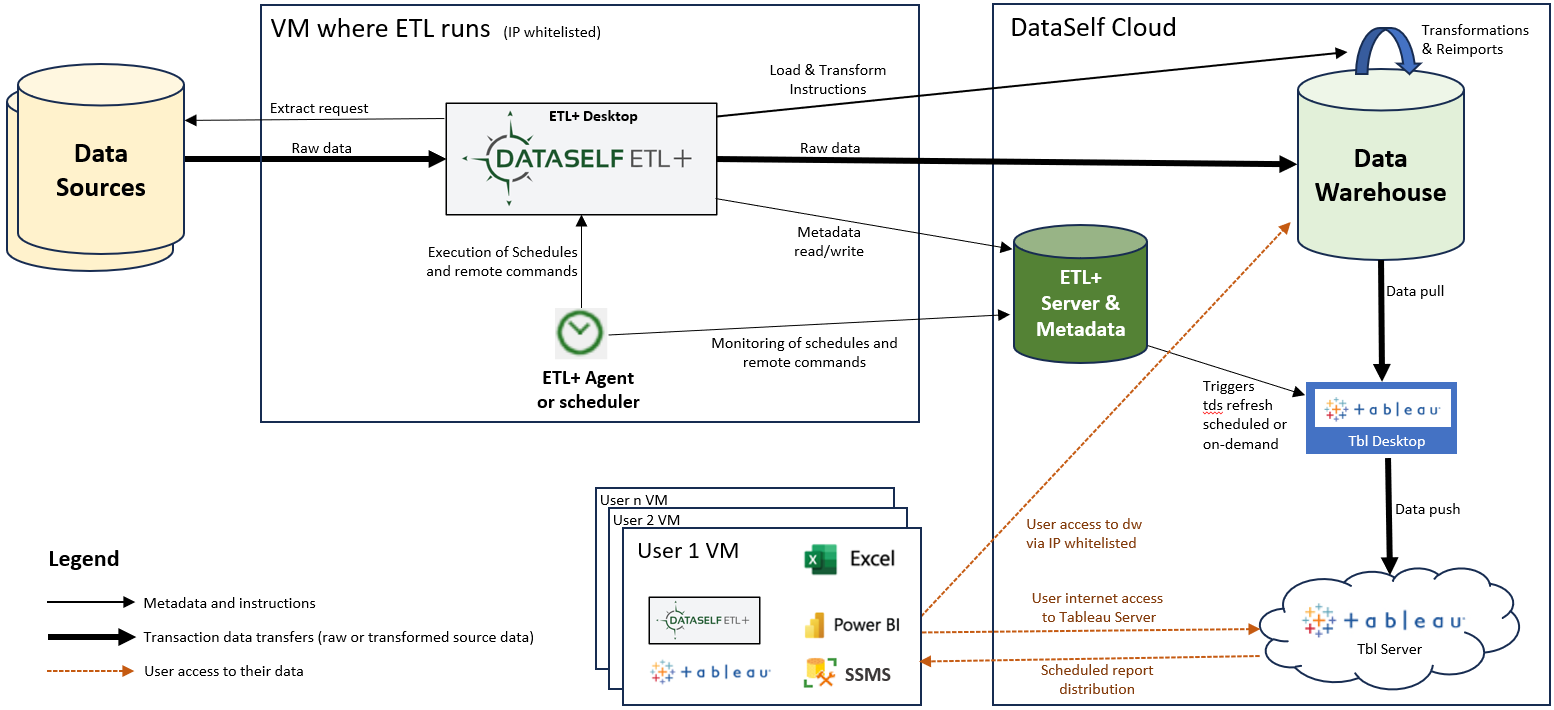ETL+ System Diagrams
ETL+ system architecture. Data sources, ETL+, data warehouse, MS SQL Server, Reporting & analytics tools: Tableau, Excel, PowerBI, Crystal Reports, etc.
ETL+ Overview
An ETL+ powered data warehousing provides the following benefits:
ETL+ is a high-performance, no-code, low-code, full-code Extraction, Transform, and Load tool to get your data sources' data into MS SQL Server data warehouses and then optimize and secure access for reporting.
You can leverage regular MS SQL and reporting tools and features in conjunction with ETL+. ETL+ is an additional powerful and easy-to-use tool, not a limitation on what you can do.
The ETL+ Agent can trigger reporting tasks on schedule. Depending on user-selected security settings, one can use it to trigger tasks on demand remotely.

DataSelf ETL+ v2023.10 Data Flow Diagram - Data Warehousing
DataSelf ETL+ is comprised of two main parts:
ETL+ Server that contains and manages the ETL metadata. No transaction data reaches the ETL+ Server, just metadata and logs. The ETL+ Server is usually hosted in DataSelf Cloud, but it can also be hosted behind the client’s firewall.
ETL+ Desktop that provides the user interface and executes ETL processes. Depending on source systems, ETL+ might process the extraction and some transformation during the data loading into the data warehouse (ex.: extract and transform OData data into the target MS SQL), or all tasks might be executed directly by the target SQL Server under the ETL+ directions (ex.: extract and transform MS SQL source data into the target MS SQL).
Once ETL+ Desktop loads the source’s metadata to its ETL+ Server, users can manage many ETL processes without connecting to the source system again. For instance, adding source tables and columns.

DataSelf Analytics Processes
Learn more about DataSelf Analytics here: https://dataself.atlassian.net/wiki/spaces/DS/pages/edit-v2/2001666087#DataSelf-Analytics-Processes

DataSelf Analytics Processes v2023.10 (Production)
The following shows the processes and communications involved in a DataSelf Analytics cloud system.

Related Pages
https://www.dataself.com/architecture/ – architecture diagram on dataself.com (main corporate website)
In this section
Search terms:
data warehousing MS SQL Server based, MSSS, reporting and analytics tools, Tableau, Excel, Power BI, Crystal reports, SSRS, data base management system, data sources, ETL, extract, data warehouse
